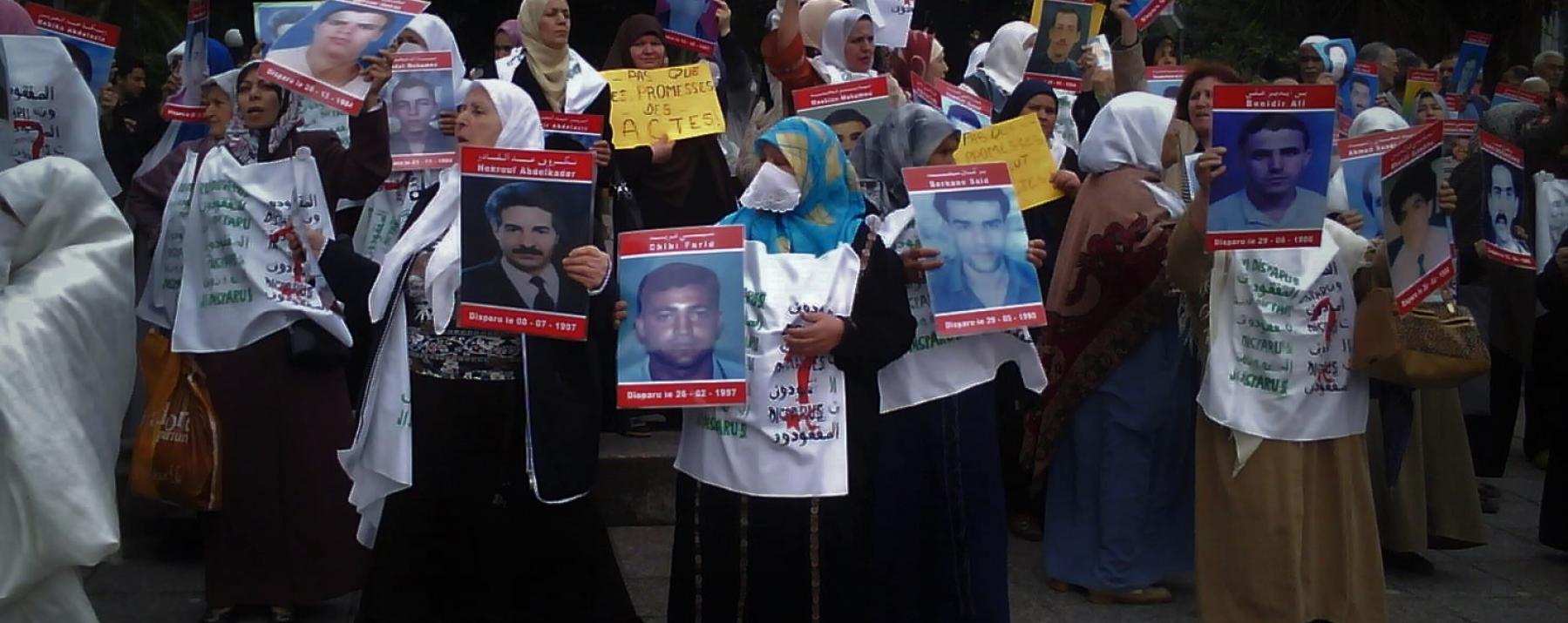Waiting for Redress: The Plight of Victims of Enforced Disappearances in Algeria - A Baseline Study

The “dirty war” of the 1990s is one of the darkest decades of Algerian history and resulted in thousands of people becoming victims of torture, enforced disappearances and other human rights violations. Following the electoral victory of the Islamic Salvation Party in 1991, the Algerian government negated the results, plunging the country into a civil war. The security forces resorted to the practice of enforced disappearances to target political opponents and instil fear into the population. Perpetrators included members of the different branches of the state security forces, as well as members of paramilitary militias.
No one was safe from enforced disappearances. Anyone deemed sympathetic to the Islamic groups, no matter their age, gender, or economic status, could become a victim. Victims were taken from their homes, places of work and public spaces. They were often arrested without a warrant and held incommunicado for lengthy periods of times. Many were never heard from again. The barracks of the Department of Intelligence and Security, and close to 100 secret detention centres, were primary locations of detention where numerous victims were tortured and eventually executed. While the majority of victims were men, women bore the brunt of these disappearances, suddenly finding themselves at the forefront of the search for their loved ones, in an attempt to know the truth and obtain justice.
It has been over two decades since the Algerian civil war ended. However, the authorities have continued to deny the existence of a deliberate policy of enforced disappearances during the conflict, accrediting them to isolated incidents sporadically undertaken by officials acting on their own initiative. As a result of the authorities’ denial, no investigations have been carried out into the thousands of disappearances and victims are still waiting for justice and reparations. The official denial of the use of enforced disappearances is embodied in the Charter on Peace and National Reconciliation adopted in 2006. The Charter provides blanket amnesties for perpetrators of human rights violations, including enforced disappearance. Victims, therefore, cannot seek justice for their loved ones at the domestic level and cannot seek nor obtain any information from the government about the fate of missing persons.
As a result, families of victims have resorted to international mechanisms to seek justice and raise awareness about enforced disappearances in Algeria. The Human Rights Committee (HR Committee) has repeatedly found that Algeria violated its international obligations and urged the government to investigate cases of enforced disappearances, identify and prosecute the perpetrators, and provide reparations to the victims, including access to truth and compensation. The Committee has also repeatedly urged the Algerian government to repeal the Charter as blanket amnesties violate human rights law standards, when they cover gross violations of human rights and serious violations of humanitarian law.
